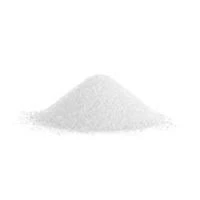
Exploring the Benefits of K Magnesium Fertilizer for Healthy Plant Growth
The Importance of K Mag Fertilizer in Agriculture
In the ever-evolving world of agriculture, the quest for increased yields and sustainable practices has led farmers and agronomists to explore various fertilizers. Among these, K Mag fertilizer has gained attention due to its unique composition and benefits. This article delves into the significance of K Mag fertilizer, its components, advantages, and application methods that can enhance soil health and crop productivity.
Understanding K Mag Fertilizer
K Mag fertilizer is a specialized mineral product primarily composed of potassium (K), magnesium (Mg), and sulfur (S). The name K refers to its potassium content, while Mag highlights its magnesium component. These three elements are critical for plant growth, contributing not only to improved yield but also to the quality of the produce.
Potassium plays a vital role in various plant processes, including photosynthesis, enzyme activation, and water regulation. Adequate potassium levels enhance the plant's resistance to diseases, pests, and environmental stressors. Magnesium, on the other hand, is a central component of chlorophyll, enabling photosynthesis and energy production. Sulfur is equally important, as it aids in protein synthesis and enhances the plant's overall metabolism.
Benefits of K Mag Fertilizer
1. Enhanced Crop Yield The balanced ratio of potassium, magnesium, and sulfur in K Mag fertilizer helps increase overall crop productivity. Crops treated with this fertilizer tend to exhibit larger fruits, better grain quality, and improved marketability.
2. Improved Nutrient Uptake The nutrients in K Mag are readily available for plant absorption. This efficient nutrient uptake means that plants can optimize their growth and development, leading to healthier crops.
3. Soil Health K Mag contributes to maintaining soil structure and fertility. By adding these essential nutrients, it enhances microbial activity, improving soil health and resilience over time.
k mag fertilizer

4. Stress Tolerance Crops treated with K Mag fertilizer often demonstrate better tolerance to abiotic stresses such as drought and high salinity. This resilience is crucial, especially in regions prone to environmental fluctuations.
5. Quality of Produce Beyond quantity, K Mag fertilizer positively impacts the quality of agricultural products. Crops grown with adequate potassium and magnesium levels tend to have better taste, nutritional value, and longer shelf life.
Application of K Mag Fertilizer
Applying K Mag fertilizer requires careful consideration of crop type, soil composition, and climatic conditions. Farmers should conduct soil tests to determine existing nutrient levels and deficiencies before application. Based on the results, they can tailor the application rates and methods to maximize effectiveness.
- Soil Application K Mag can be applied directly to the soil during land preparation or as a side dressing during the growing season. Incorporating it into the top layer of soil ensures better contact with plant roots.
- Foliar Feeding In some cases, foliar application is advantageous, especially if the plants show deficiency symptoms early in the growing season. A solution of K Mag can be sprayed on the leaves to provide immediate nutrient access.
- Compatibility with Other Fertilizers K Mag can be blended with other fertilizers, but care should be taken to avoid any antagonistic reactions between nutrients. It is advisable to consult with agricultural experts when creating custom fertilizer mixes.
Conclusion
In conclusion, K Mag fertilizer represents a strategic choice for modern agriculture, combining essential nutrients to support the health and productivity of crops. As the agricultural sector continues to face challenges such as climate change, soil degradation, and growing food demand, the adoption of balanced fertilization practices, such as using K Mag, will be crucial. By enhancing soil health, improving crop yields, and ensuring produce quality, K Mag stands out as an indispensable tool in the farmer's arsenal for sustainable agricultural practices. Embracing such advancements will not only benefit farmers but also contribute to global food security and environmental sustainability.
-
Understanding Synthetic Rubber OptionsNewsApr.27,2025
-
Trichloroisocyanuric Acid: Essential for Clean and Safe WaterNewsApr.27,2025
-
Sodium Dichloroisocyanurate: Key to Safe Water TreatmentNewsApr.27,2025
-
Sodium Acid Pyrophosphate: Essential in Modern Food ProcessingNewsApr.27,2025
-
Essential Water Treatment ChemicalsNewsApr.27,2025
-
Denatured Alcohol and Its Industrial UsesNewsApr.27,2025
-
The Versatile Uses of Sodium BicarbonateNewsApr.24,2025
Hebei Tenger Chemical Technology Co., Ltd. focuses on the chemical industry and is committed to the export service of chemical raw materials.
-

view more DiethanolisopropanolamineIn the ever-growing field of chemical solutions, diethanolisopropanolamine (DEIPA) stands out as a versatile and important compound. Due to its unique chemical structure and properties, DEIPA is of interest to various industries including construction, personal care, and agriculture. -

view more TriisopropanolamineTriisopropanolamine (TIPA) alkanol amine substance, is a kind of alcohol amine compound with amino and alcohol hydroxyl, and because of its molecules contains both amino and hydroxyl. -

view more Tetramethyl Thiuram DisulfideTetramethyl thiuram disulfide, also known as TMTD, is a white to light-yellow powder with a distinct sulfur-like odor. It is soluble in organic solvents such as benzene, acetone, and ethyl acetate, making it highly versatile for use in different formulations. TMTD is known for its excellent vulcanization acceleration properties, which makes it a key ingredient in the production of rubber products. Additionally, it acts as an effective fungicide and bactericide, making it valuable in agricultural applications. Its high purity and stability ensure consistent performance, making it a preferred choice for manufacturers across various industries.











